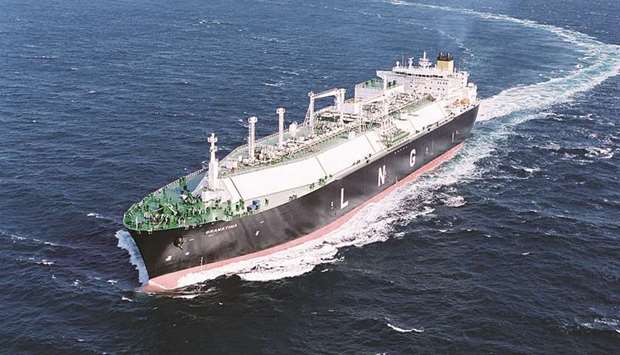The World Bank's regional director for GCC, Issam Abu Sulaiman, affirmed that the State of Qatar has the best performance among GCC states in the average rate of growth in 2020, noting that Qatar's dominant position in the natural gas export markets protects it from future fluctuations.
In an interview with Qatari Lusail newspaper published on Sunday, Abu Sulaiman said that the State of Qatar is recovering in 2021 and is on track to reach 3.6% growth, while expectations indicate that the Gulf Cooperation Council's states will achieve a growth of 2.2%.
He also pointed out that the State of Qatar is expected to achieve better performance than GCC state's average rate of growth in 2020.
Regarding the growth factors of the Qatari economy, the World Bank's regional director explained that the State of Qatar relies significantly on hydrocarbon revenues, just like most of the GCC states. Therefore, natural gas prices will remain the most important economic factor in the short and medium term.
He noted that at the long term, the success of structural reforms and strategic investments will determine whether or not Qatar can diversify its economy, pointing out that the main non-oil sectors in Qatar such as public administration, defence, financial sectors, insurance and real estate have positively contributed to growth.
He added that the State of Qatar has the ability to access international bond market, after it issued bonds worth $10bn, one year after it sold international bonds worth $12bn in March 2019, stressing that the State of Qatar maintains a large financial space through which it can address the coronavirus (Covid-19) pandemic.
About the global energy markets and oil prices, Sulaiman ruled out the end of oil era, expecting that renewable energy would capture a large share of the energy market, which would increase pressure on hydrocarbons.
This will give the State of Qatar an opportunity to manage the transition process, as natural gas will remain important for some time as a transition fuel, he added.
With regard to Covid-19, he emphasised that the pandemic not only affected human health, but also led to a severe economic impact as a result of supply and demand shocks, as governments put restrictive containment measures to deal with the crisis, which weakened consumer demand.
The World Bank's official said that the strength and speed of economic recovery depends on the duration and severity of the pandemic as well as how governments deal with its impacts, noting that the more governments are able to contain the virus or provide a treatment or vaccine, the more likely the economy will recover quickly, especially if governments introduce stimulus policies that protect vulnerable families as well as large, small and medium-sized enterprises, and if the financial sector remains having sufficient cash and able to fulfil its obligations.

